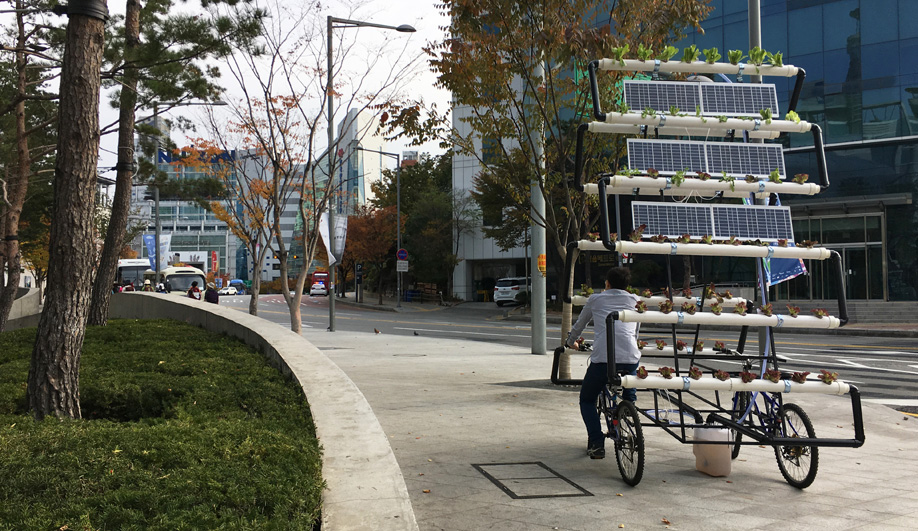
This quirky concept by People’s Industrial Design Office for a garden on wheels may inspire the takeout meals of the future.
It takes a lot of energy to grow food. It’s calculated that, between the fertilizers and the transportation, it takes up to 10 fossil fuel calories to produce a single calorie of food energy. That massive carbon footprint is one reason for the resurgence in urban farming, a concept that is not actually new – the farms of Brooklyn fed New York City centuries ago.
Today, many urbanites want access to healthy, organic food without negative environmental impact. New Yorkers are being fed by green-roof farms like Brooklyn Grange. In Montreal, Lufa Farms grows vegetables hydroponically under glass. In Singapore, Sky Greens sprouts produce in a nine-metre vertical farm filled with rotating trays of vegetables. However, in all of these iterations, the produce gets delivered by truck, so there is still a carbon footprint.

That’s why this vertical farm on a bike, designed by Beijing’s People’s Industrial Design Office during a 72-hour hackathon in Seoul, is not as ridiculous as it looks. The idea is simple: Instead of consumers going to the store for produce, Bike Share Farm brings the garden to them via a hydroponic system mounted to a pair of bicycles. Unlike other vertical farms that use grow lights, it’s truly solar powered – the photovoltaic panels harvest energy for the irrigation system, while the plants grow under natural sunlight. By skipping the middleman, the bike farm is ultimately better for both the consumer and the planet, delivering carbon-free leafy greens to your door. It’s an idea that needs some refining, but it may well be a precursor of the next big thing in urban food delivery.

This story was taken from the October 2017 issue of Azure. Buy a copy right here, or subscribe to the magazine here.
